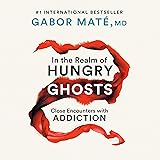Unveiling the Terrible Paradox of Self-Awareness: The Enduring Legacy of Fernando Pessoa
As you’ve seen in the accompanying video, some works of art possess an origin story so extraordinary it almost overshadows the creation itself. Such is the captivating tale of Fernando Pessoa, a towering figure of 20th-century Portuguese literature, whose life and masterpiece, *The Book of Disquiet*, offer a profound exploration into the very nature of human existence. His narrative is not merely interesting; it becomes an integral part of the content, inviting us to ponder the depths of selfhood, anonymity, and the perplexing paradox of self-awareness.
Fernando Pessoa’s journey began in 1888 in the vibrant city of Lisbon, Portugal. His early years were marked by significant loss and impermanence, experiences that undeniably shaped his introspective nature. At the tender age of five, he lost his father to tuberculosis, and the following year, his younger brother also passed away. Soon after these devastating events, his mother remarried, prompting a move to South Africa and severing his ties to the familiar landscapes of his childhood.
During his time in South Africa, Pessoa immersed himself in English language and literature, a skill that would later enrich his distinctive writing style. Upon turning 17, he returned to Lisbon, alone, where he dedicated the remainder of his life to his true calling: writing. Despite his prolific output, Pessoa lived and died in almost complete obscurity in 1935, having published only a handful of works that received little attention. He was, by all accounts, an unknown literary genius during his lifetime.
The Astonishing Discovery of *The Book of Disquiet*
Remarkably, Fernando Pessoa seemingly possessed an uncanny intuition about his future literary stature. He died knowing he was a significant writer, or at the very least, destined to become one. In a truly prophetic turn of events, his intuition was correct. Following his death, a vast trove of manuscripts, including *The Book of Disquiet* and tens of thousands of other pages, remained hidden in a wooden trunk, untouched and unrecognized for decades. This extraordinary collection continued to be a secret, patiently waiting for its moment to emerge into the world.
It was not until 1982, a poignant 47 years after Pessoa’s passing — the exact age he was when he died — that *The Book of Disquiet* was finally unearthed and published. This event marked a pivotal moment in literary history, catapulting Pessoa from anonymity to international acclaim. The book swiftly garnered recognition as one of the most unique and significant literary works of the entire 20th century, cementing his legacy in a way he could only have dreamed of. Its delayed discovery only added to the mystique surrounding its creation and the author’s prescient vision.
Beyond the Pen Name: The World of Pessoa’s Heteronyms
*The Book of Disquiet* is a lifetime’s accumulation of Fernando Pessoa’s deepest reflections and musings on existence. Within its pages, readers encounter profound thoughts on the interplay of reality and dreaming, the tedium of daily life, the concept of selfhood, the inherent absurdity of being, and the ultimate futility of human endeavor. He masterfully delves into the simultaneous complexity and simplicity of life, constantly highlighting the contradictions and paradoxes that lie at the very core of everything we experience.
What makes this work even more extraordinary is its unique structure. The book comprises a collection of fragmented vignettes, blurring the lines between diary entries and poetic prose. There is no conventional linear narrative; one could argue that the book can be experienced just as effectively read backward as forward. This unconventional arrangement invites readers to engage with the text in a highly personal and introspective manner, mirroring the fragmented nature of the self it often explores.
Further adding to its enigma, Fernando Pessoa does not claim authorship of *The Book of Disquiet*. Instead, it is credited to Bernardo Soares, an assistant bookkeeper from Lisbon, and occasionally to Vicente Guedes. Both Soares and Guedes are not real individuals; they are characters meticulously crafted by Pessoa to author his work. This fascinating practice extends throughout Pessoa’s vast literary output, where he attributed different pages and collections to various fictitious authors, known as heteronyms.
These heteronyms are far more than mere pen names. They are fully developed characters, each possessing distinct writing styles, unique personalities, individual worldviews, and elaborate backstories. Throughout his lifetime, Pessoa wrote under approximately 80 different heteronyms, creating an intricate literary universe populated by these invented identities. This ambitious undertaking makes *The Book of Disquiet* neither a straightforward non-fiction book by an anonymous author nor a conventional novel about a fictional character; it exists in a captivating space somewhere in between, often described as the “weirdest autobiography ever written,” or, as Pessoa himself put it, “a factless autobiography” or “an autobiography of someone who never existed.”
Philosophical Depths: The Fragmented Self and Existential Disquiet
The unique structure and style of *The Book of Disquiet* serve as an essential foundation for its central philosophical themes. Pessoa’s audacious use of heteronyms powerfully reinforces a core idea explored throughout the work: the fragmented and often illusory nature of the self. Through Bernardo Soares, Pessoa articulates, with astonishing accuracy and poignancy, the inherent alienation, disorientation, and pervasive loneliness that are part and parcel of the human condition. Reading these passages often feels cathartic, as if an unspoken truth is finally being given voice.
Pessoa’s introspection reveals a profound sense of existential uncertainty. He famously wrote, “I don’t know how to feel or think or love. I’m a character in a novel as yet unwritten, hovering in the air and undone before I’ve even existed…” This powerful quote highlights the feeling of being an incomplete sketch, a nascent idea without full form. His words resonate with anyone who has ever felt adrift, questioning their own reality or the solidity of their identity, experiencing their thoughts as lacking reason and emotions as lacking feeling. It is a striking portrayal of a mind constantly grappling with its own existence.
For Fernando Pessoa, the pursuit of self-understanding, or even the mere attempt to grasp one’s inner workings, felt like a free fall into a bottomless abyss. He envisioned this journey as a descent down a rabbit hole, with a landing that brings only profound disorientation. The inherent impossibility of truly understanding and fully communicating one’s intricate internal experiences, while perpetually falling through this metaphorical space, inevitably leads to a lifetime characterized by disquiet and a pervasive sense of being lost. This core struggle forms the heart of *The Book of Disquiet*, making it a timeless exploration of the human psyche.
Embracing Futility and the Power of Paradox
Throughout *The Book of Disquiet*, Fernando Pessoa frequently grapples with themes of tedium, futility, and the unsettling nature of meaninglessness. For him, much of what we perceive as reality is a kind of elaborate delusion, and life itself is merely a sequence of fleeting dreams. This perspective suggests that our waking existence is as transient and insubstantial as the dreams that vanish from our memory upon awakening, never to be recalled or contemplated again.
“I’ve never done anything but dream. This, and this alone, has been the meaning of my life. My only real concern has been my inner life,” Pessoa penned. This stark admission reveals a profound detachment from external achievements and societal expectations. From Pessoa’s vantage point, there is ultimately no real, lasting point in striving, doing, or achieving anything in the material world. Our experiences, he suggests, are destined to be veiled by the shifting fog of consciousness and ultimately forgotten, much like a dream dissipating with the morning sun.
Pessoa’s declaration, “If I write what I feel, it’s to reduce the fever of feeling. What I confess is unimportant, because everything is unimportant,” perfectly encapsulates his philosophy. This seemingly paradoxical statement brings to light another major theme in the book: contradiction. One might ask, why write so prolifically about the pointlessness of action and the impossibility of adequate expression, all while actively writing and expressing? Yet, this is precisely where the genius of Pessoa lies; he saw utility in paradox.
Consider the analogy from medicine: preventative treatments often contain weakened forms of the very disease they aim to prevent, allowing the body to build immunity. Similarly, Pessoa’s work, in its profound exploration of disquiet and futility, exposes readers to the “virus of being.” By confronting these uncomfortable truths through his art, we are arguably equipped to develop a greater immunity, perhaps even a resilience, to survive the inherent challenges of existence. The driving force behind Pessoa’s monumental act of creation was paradoxically the deep-seated awareness that such creation was, in the grand scheme, pointless. This intellectual dance with futility offers a powerful and enduring insight into the human condition.
The Prophetic Voice of Fernando Pessoa: A Literary Metaphor
The story of *The Book of Disquiet* itself, especially its unfinished state and eventual discovery, seems to perfectly mirror Fernando Pessoa’s philosophical conception of existence. It remained trapped inside a trunk, truly known only after Pessoa’s death, when it could no longer be altered by its creator. The book, interpreted through fragmented vignettes written by a fictional character, was completed not by the author’s intention but by the passage of time. In this sense, the book becomes an almost perfect metaphor for a human life: incomplete, discovered after the fact, and shaped by forces beyond its original intent.
Adding another layer of unsettling synchronicity, it’s worth noting that Pessoa’s birth name, “Pessoa,” translates directly to “person” in English. This simple fact elevates the book’s narrative to an almost metaphysical or spiritual quality. It feels like a profoundly religious text for those without traditional faith, a manual of sorts for individuals grappling with nihilistic thoughts. It is a work capable of deeply moving and perhaps even devastating many readers, yet it also offers a strange comfort, a powerful reminder not to take oneself, or indeed life itself, too seriously.
Perhaps the most astounding aspect of *The Book of Disquiet*’s narrative is that it contains passages that eerily foretell its own fate. Pessoa wrote, “It sometimes occurs to me, with sad delight, that if one day in a future I won’t be part of, the sentences I write are read and admired, then at last I’ll have my own kin, people who ‘understand’ me, my true family in which to be born and loved. But far from being born into it, I’ll have already died long ago.” He continued, predicting that future readers would realize he fulfilled his “instinctive duty to interpret a portion of our century,” but that they, too, would fail to truly understand their contemporary literary figures, just as his own contemporaries failed to understand him. This profound statement reflects on the cyclical nature of misunderstanding across generations.
These prophetic words have, of course, come true in our present moment. We are, right now, participating in the very future Fernando Pessoa envisioned a century ago. One cannot help but wonder if this was the outcome of a masterfully constructed plan by a brilliant creative mind, a mere twist of fate, or perhaps an intricate blend of both. Whatever the explanation, the remarkable story of *The Book of Disquiet* has inextricably woven itself into the fabric of its artistic creation, solidifying its place as a truly unique and powerful testament to the terrible paradox of self-awareness.








